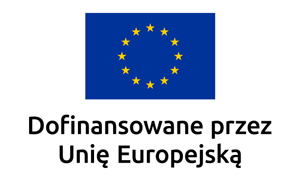FUNKCJONOWANIE W SYSTEMIE
OBOWIĄZKI INSTYTUCJI CERTYFIKUJĄCYCH
Instytucje, które prowadzą walidację, mają określone obowiązki. Określa je ustawa o Zintegrowanym Systemie Kwalifikacji (ZSK).
Każda instytucja certyfikująca (IC) ma obowiązek:
- zamieszczać na stronie internetowej szczegółowe informacje o walidacji,
- mieć wewnętrzny system zapewniania jakości,
- przeprowadzać ewaluację wewnętrzną w odniesieniu do każdej kwalifikacji rynkowej, do której certyfikowania jest uprawniona (nie rzadziej niż raz na 3 lata) oraz sporządzać raport z ewaluacji wewnętrznej i przekazywać go PZZJ,
- przekazywać na koniec każdego kwartału – za pośrednictwem Zintegrowanego Rejestru Kwalifikacji (ZRK) – informacje o:
- liczbie wydanych certyfikatów,
- wysokości opłat za walidację i certyfikowanie,
- wysokości przychodów uzyskanych w danym kwartale z opłat za walidację i certyfikowanie.

INSTYTUCJA CERTYFIKUJĄCA RAZ NA KWARTAŁ WNOSI OPŁATĘ W WYSOKOŚCI 3% PRZYCHODÓW Z OPŁAT ZA WALIDACJĘ I CERTYFIKOWANIE. MINIMALNA OPŁATA TO 1 ZŁ OD WYDANEGO DOKUMENTU POTWIERDZAJĄCEGO NADANIE KWALIFIKACJI RYNKOWEJ.
PROWADZENIE WALIDACJI
Po nadaniu uprawnień i wyznaczeniu przez ministra podmiotu zewnętrznego zapewniania jakości (PZZJ), instytucja certyfikująca (IC) może prowadzić walidację.
Ustawa nie określa, jak często IC ma przeprowadzać walidację – decyduje o tym sama IC. Nie ma także określonego terminu, w którym trzeba rozpocząć prowadzenie walidacji.
Opłaty za walidację
Walidacja jest usługą płatną. Instytucje certyfikujące decydują o wysokości opłat za walidację danej kwalifikacji oraz pobierają wszelkie opłaty od kandydatów.
Wysokość opłat jest zależna od:
- organizacji walidacji,
- polityki cenowej prowadzonej przez instytucję certyfikującą.
Opłaty za walidację mogą różnić się między instytucjami certyfikującymi, nawet jeśli prowadzą walidację tej samej kwalifikacji rynkowej.
Instytucja musi podać informację o kosztach walidacji na swojej stronie internetowej.
ZAPEWNIANIE WARUNKÓW PROWADZENIA WALIDACJI
Instytucja certyfikująca (IC) nie musi mieć wszystkich zasobów, które są opisane w warunkach organizacyjnych – na przykład sprzętu, własnego lokalu. Nie musi także na stałe zatrudniać kadry – asesorów, doradców, osób projektujących walidację.
Ważne, aby zapewniała zawarte w opisie kwalifikacji warunki do przeprowadzania walidacji – bez względu na to, jaką ma strukturę organizacyjną lub na jakich zasadach współpracuje z innymi podmiotami.
Współpraca instytucji certyfikującej z instytucjami walidującymi
W praktyce IC często współpracują z innymi podmiotami, które prowadzą walidację (instytucjami walidującymi) – na przykład gdy:
- mają rozbudowaną strukturę – są na przykład ogólnopolskim stowarzyszeniem z regionalnymi oddziałami. Centrala stowarzyszenia ma wtedy status instytucji certyfikującej, a regionalne oddziały prowadzą walidację jako instytucje walidujące;
- firma, która specjalizuje się w danym obszarze, zostaje instytucją certyfikującą, a walidację powierza ośrodkom szkoleniowym. To ośrodki mają warunki lokalowe, potrzebny sprzęt i pracowników, którzy mogą pełnić rolę asesorów.
Zasady współpracy między instytucją certyfikującą i instytucjami walidacyjnymi zainteresowani ustalają między sobą – w umowie lub porozumieniu. Ustawa o Zintegrowanym Systemie Kwalifikacji nie narzuca tu żadnych specyficznych wymagań.

DO INSTYTUCJI CERTYFIKUJĄCEJ ZAWSZE NALEŻY:
- PRZYGOTOWANIE PROCEDUR PROWADZENIA WALIDACJI,
- ZAPEWNIENIE JAKOŚCI WALIDACJI,
- WYPEŁNIENIE OBOWIĄZKÓW SPRAWOZDAWCZYCH.
KADRA INSTYTUCJI CERTYFIKUJĄCEJ (IC)

Instytucja certyfikująca (IC) musi zadbać o to, aby zatrudnić asesorów, którzy będą spełniać wymagania wskazane w opisie kwalifikacji. Zazwyczaj w opisie kwalifikacji zawarte są także wymogi dotyczące liczby asesorów, którzy powinni brać udział w walidacji albo wchodzić w skład komisji.
Jeśli IC zaplanowała, że w procesie walidacji będzie zapewniać wsparcie doradcy walidacyjnego, musi zadbać o właściwe przygotowanie i zatrudnienie takiej osoby.
Asesorzy walidacyjni to specjaliści, którzy sprawdzają, czy kandydat ma odpowiednią wiedzę i umiejętności wymagane dla danej kwalifikacji. Asesor weryfikuje efekty uczenia się osób, które biorą udział w walidacji.
Poza specyficznymi wymaganiami, związanymi z daną kwalifikacją, asesorzy powinni zostać przez instytucję certyfikującą przygotowani do prowadzenia procesów walidacji w taki sposób, aby zapewniać jej jakość. Oznacza to, że muszą znać standardy pracy i procedury obowiązujące w danej IC i zgodnie z nimi postępować.
Asesor walidacyjny to osoba, która powinna:
- rozumieć cele walidacji,
- mieć wiedzę na temat walidacji,
- znać zasady oceniania dowodów i deklaracji na osiągnięcie efektów uczenia się,
- umieć stosować metody i narzędzia weryfikacji,
- mieć doświadczenie w zakresie weryfikowania efektów uczenia się,
- być komunikatywna,
- przestrzegać wysokich standardów etyki zawodowej, w szczególności zachowywać bezwarunkową bezstronność przy ocenianiu,
- mieć doświadczenie zawodowe w branży, z której pochodzą kwalifikacje będące w zakresie jego działania jako asesora walidacyjnego,
- mieć szczegółową wiedzę dotyczącą walidacji efektów uczenia się wymaganych dla kwalifikacji będących w zakresie jego działania jako asesora walidacyjnego,
- znać wymagane efekty uczenia się oraz kryteria weryfikacji ustalone dla kwalifikacji będących w zakresie jego działania jako asesora walidacyjnego,
- znać metody i narzędzia stosowane w celu zweryfikowania wymaganych efektów uczenia się,
- znać kryteria oceny formalnej i merytorycznej dowodów poświadczających posiadanie wymaganych efektów uczenia się, ustalonych dla kwalifikacji będących w zakresie jego działania jako asesora walidacyjnego.

Doradcy walidacyjni to specjaliści, którzy na każdym etapie walidacji wspierają osoby starające się o certyfikat.
Bardzo ważną rolą doradcy walidacyjnego jest wsparcie kandydata na etapie identyfikowania efektów uczenia się. Doradca pomaga określić, co kandydat już wie i umie, a czego powinien się douczyć, by otrzymać certyfikat.
Jeśli w walidacji stosuje się metodę analizy dowodów i deklaracji, doradca może pomóc kandydatowi w zebraniu odpowiednich dokumentów (na etapie dokumentowania efektów uczenia się, czyli przygotowywania dowodów i deklaracji, które będą oceniane przez asesorów na etapie weryfikacji).
Doradca walidacyjny to osoba, która powinna:
- rozumieć cele walidacji,
- mieć wiedzę na temat walidacji,
- mieć wiedzę na temat instytucji kształcących i certyfikujących oraz instytucji rynku pracy i oferowanych przez nie usług,
- umieć pozyskiwać nowe informacje,
- umieć stosować metody i narzędzia pomocne przy identyfikowaniu i dokumentowaniu kompetencji,
- znać zasady weryfikacji dowodów i deklaracji na osiągnięcie efektów uczenia się,
- umieć pracować z różnymi osobami – mieć otwartą postawę,
- być wolna od uprzedzeń,
- umieć słuchać i być komunikatywny,
- umieć motywować,
- przestrzegać wysokich standardów etyki zawodowej,
- mieć doświadczenie zawodowe w branży, z której pochodzą kwalifikacje będące w zakresie jego działania jako doradcy walidacyjnego,
- znać wymagane efekty uczenia się oraz kryteria weryfikacji ustalone dla kwalifikacji będących w zakresie jego działania jako doradcy walidacyjnego,
- znać metody i narzędzia stosowane w celu zweryfikowania wymaganych efektów uczenia się,
- znać kryteria oceny formalnej i merytorycznej dowodów poświadczających posiadanie wymaganych efektów uczenia się, ustalonych dla kwalifikacji będących w zakresie jego działania jako doradcy walidacyjnego.

Tak przygotowany doradca walidacyjny może skutecznie wspierać osoby, które zdecydowały się przystąpić do walidacji. Po dodatkowym przygotowaniu doradca będzie mógł z powodzeniem wypełniać również obowiązki asesora walidacyjnego.
ZAPEWNIANIE JAKOŚCI

Zapewnianie jakości jest priorytetem dla Zintegrowanego Systemu Kwalifikacji (ZSK).
Dzięki temu pracownicy i pracodawcy mogą mieć pewność, że certyfikaty potwierdzające kwalifikację są wiarygodne i wartościowe.
Wysoka jakość nadawanych kwalifikacji ma znaczenie dla:
- pracowników – którzy mogą łatwiej planować swój rozwój zawodowy i zwiększyć swoje szanse na rynku pracy,
- pracodawców – dla których wysokie kwalifikacje pracowników to potencjał firmy,
- gospodarki – bo od jakości kwalifikacji zależą siła i szanse na rozwój możliwości na rynku pracy.
Za jakość kwalifikacji nadawanych w ZSK odpowiadają ministrowie właściwi, instytucje certyfikujące (IC) i podmioty zewnętrznego zapewniania jakości (PZZJ). Współpraca między nimi będzie miała ogromne znaczenie dla tego czy kwalifikacja będzie realna, dostosowana do rzeczywistych potrzeb gospodarki i rynku pracy, a także dobrze opisana.
Rozwiązania przyjęte w ZSK zakładają dwutorowy system zapewniania jakości nadawania kwalifikacji. Wewnętrzne zapewnianie jakości obejmuje procesy walidacji, certyfikacji oraz obsługi kandydatów i jest prowadzone w sposób ciągły przez IC. Z kolei zewnętrzne zapewnianie jakości obejmuje wszystkie procesy związane z nadawaniem kwalifikacji realizowane przez IC oraz współpracujące z nią instytucje walidujące i jest realizowane okresowo.
Wewnętrzne i zewnętrzne systemy zapewniania jakości

Wewnętrzny system zapewniania jakości jest opracowywany przez instytucję certyfikującą. Taki system wpływa na zasady postępowania, procedury, metody oraz rozwiązania organizacyjne.
Jego celem jest zapewnianie poprawności oraz doskonalenie walidacji i certyfikowania przez samą instytucję.
Służy temu:
- stosowanie rozwiązań, które rozdzielają proces kształcenia i szkolenia od walidacji,
- stałe monitorowanie i bieżąca ocena walidacji i certyfikowania,
- okresowa ewaluacja wewnętrzna walidacji i certyfikowania.

Zewnętrzne zapewnianie jakości sprawuje PZZJ.
Polega ono na:
- monitorowaniu wewnętrznego systemu zapewniania jakości stosowanego w IC,
- monitorowaniu spełniania przez IC wymagań określonych w ustawie,
- okresowej ewaluacji zewnętrznej obejmującej procesy walidacji i certyfikowania prowadzone przez daną IC oraz funkcjonowania wewnętrznego systemu zapewniania jakości w tej instytucji.
PODMIOTY ZEWNĘTRZNEGO ZAPEWNIANIA JAKOŚCI (PZZJ)

PZZJ monitorują i prowadzą ewaluację procesów walidacji i certyfikowania prowadzonych przez IC w odniesieniu do konkretnej kwalifikacji
PZZJ to instytucje prowadzące zorganizowaną działalność w obszarze gospodarki, rynku pracy, edukacji lub szkoleń, wpisane na listę podmiotów zewnętrznego zapewniania jakości.

Takim podmiotem zostaje instytucja, której minister właściwy nadał odpowiednie uprawnienia.
PZZJ zajmuje się wsparciem IC w procesie walidacji i certyfikowania.
Prowadzi:
- ciągły monitoring działań IC,
- okresową ewaluację zewnętrzną tych działań.
Monitorowanie to proces systematycznego zbierania i analizowania informacji.
Ewaluacja to rodzaj badania, polegającego na ocenie czy i na ile cele jakiegoś działania zostały osiągnięte w praktyce. W kontekście ZSK tym działaniem są procesy walidacji i certyfikacji prowadzone przez IC.
Minister właściwy dla danej kwalifikacji powierza pełnienie funkcji PZZJ wybranemu podmiotowi, spośród instytucji do tego uprawnionych. W praktyce oznacza to, że minister podpisuje umowę z PZZJ, określając kwalifikację oraz instytucję certyfikującą, wobec której PZZJ ma wykonywać swoje zadania.
Co roku MW rozlicza PZZJ z prowadzonych działań – na podstawie protokołu odbioru oraz ewentualnej dodatkowej dokumentacji wypłaca wynagrodzenie PZZJ za rok realizacji umowy.
Nadzór nad walidacją i certyfikowaniem kwalifikacji wolnorynkowych i kwalifikacji sektorowych włączonych przez ministrów właściwych do Zintegrowanego Systemu Kwalifikacji sprawują ministrowie właściwi. Mogą oni prowadzić kontrolę w IC oraz PZZJ. Mają prawo zastosować sankcje – na przykład:
- cofnąć uprawnienia IC,
- usunąć podmiot z listy PZZJ.
PZZJ raz na 3 lata przedstawia ministrowi właściwemu sprawozdanie z działalności. Okres sprawozdawczy dla IC w zakresie walidacji i certyfikowania to 2 lata.
Co robi PZZJ?
- zbiera i analizuje informacje, które służą doskonaleniu wymagań dotyczących walidacji oraz zapewniania jakości w opisie kwalifikacji
- wspiera IC w procesie doskonalenia walidacji i certyfikowania oraz wewnętrznego systemu zapewniania jakości,
- rekomenduje zmiany w wymaganiach dotyczących walidacji oraz zapewniania
- niezwłocznie zawiadamia ministra właściwego, jeżeli uzna, że IC działa nieprawidłowo i nie spełnia wymagań określonych w opisie kwalifikacji.
W jaki sposób PZZJ wykonuje swoje zadania?
- prowadzi obserwacje procesów walidacji i przekazuje informację zwrotną dla IC
- analizuje dokumenty (np. informacje kwartalne przekazywane przez IC, sprawozdania IC z działalności, dokumenty związane z wewnętrznym systemem zapewniania jakości, raporty z ewaluacji wewnętrznej IC, dokumenty związane z otrzymanie uprawnień do certyfikowania)
- prowadzi rozmowy i wywiady z osobami zaangażowanymi w prowadzenie walidacji i certyfikowania przez IC (np. kadrą zarządzającą IC, koordynatorem walidacji, asesorami, doradcą walidacyjnym).
PZZJ prowadzi swoje działania w sposób ciągły, każdego roku prowadząc wizyty monitorujące w miejscach, w których odbywa się walidacja i organizując spotkania w siedzibie IC. Okresowo, np. w momencie przygotowywania raportu z zewnętrznego zapewniania jakości działania PZZJ mogą być intensywniejsze. Zawsze jednak powinien ustalić harmonogram prac w danym roku z IC. Wszystkie działania PZZJ są dokumentowane.
WSPÓŁPRACA INSTYTUCJI CERTYFIKUJĄCYCH Z PODMIOTAMI ZEWNĘTRZNEGO ZAPEWNIANIA JAKOŚCI (PZZJ)

Aby zewnętrzne zapewnianie jakości mogło spełnić swoją rolę, kluczowe jest zbudowanie zaufania w relacji między IC i PZZJ, które można osiągnąć przez otwartą komunikację, prowadzoną zgodnie z ustalonymi zasadami: w odpowiednim czasie, za pośrednictwem ustalonych kanałów, sprawnie reagując na pojawiające się problemy.
Proces współpracy między kluczowymi instytucjami odpowiedzialnymi za jakość kwalifikacji zapoczątkowuje minister właściwy, jako instytucja nadzorująca.

Minister zazwyczaj organizuje SPOTKANIE TRÓJSTRONNE, w którym udział biorą także PZZJ i IC. Podczas tego spotkania strony ustalają harmonogram współpracy, kanały komunikacji, omawiają rozwiązania organizacyjne IC przyjęte dla walidacji danej kwalifikacji, w tym harmonogram walidacji.
Na obecnym etapie rozwoju systemu IBE wspiera ministrów w organizacji i moderowaniu spotkań.
WSPÓŁPRACA MIĘDZY RÓŻNYMI PZZJ
Z punktu widzenia koordynacji procesów zapewniania jakości w systemie, ważne jest aby różne PZZJ wymieniały się doświadczeniami i wiedzą zdobytymi podczas pełnienia swojej funkcji. Dzięki temu możliwe będzie doskonalenie narzędzi i rozwiązań organizacyjnych dotyczących zapewniania jakości. IBE wspiera proces wymiany informacji i doświadczeń, organizując spotkania dla różnych PZZJ, przygotowując wzory dokumentów do wykorzystania przez PZZJ, proponując rozwiązania dostosowane do sytuacji i potrzeb PZZJ.

PZZJ DLA TYCH SAMYCH KWALIFIKACJI
Ustawa o ZSK wskazuje na konieczność współpracy tych PZZJ, które pełnią swoją funkcję wobec tej samej IC dla danej kwalifikacji, tak aby zapewniać spójny standard jakości certyfikowania danej kwalifikacji.

PZZJ DLA RÓŻNYCH KWALIFIKACJI
W sytuacji, w której jedna instytucja certyfikuje kwalifikacje z różnych grup kwalifikacji, może zostać jej przypisanych kilka różnych PZZJ. W tym kontekście ważne jest skoordynowanie działań oraz bieżąca współpraca między tymi PZZJ.
Harmonogramy działań (np. ewaluacji zewnętrznej) dla kilku kwalifikacji mogą nachodzić na siebie, dlatego aby nie zdezorganizować codziennej pracy IC, różne PZZJ wraz z IC powinny porozumieć się między sobą w sprawie terminów tych działań.
LISTA PODMIOTÓW ZEWNĘTRZNEGO ZAPEWNIANIA JAKOŚCI (PZZJ)
Nabór PZZJ odbywa się minimum raz na 3 lata i ogłasza go Minister Edukacji Narodowej. Ogłoszenie jest publikowane na portalu ZSK.
W praktyce minister ogłasza konkurs wtedy, na przykład kiedy do systemu włączana jest kwalifikacja należąca do grupy, do której:
- nie ma podmiotu posiadającego stosowne uprawnienia,
- ze względu na dużą liczbę IC istnieje potrzeba więcej takich podmiotów.
KTO MOŻE ZOSTAĆ PZZJ?
Może to być instytucja, która spełnia następujące wymogi: prowadzi obecnie działalność gospodarczą, nie zalega z podatkami i składkami, ma przynajmniej 10-letnie doświadczenie w zakresie gospodarki, rynku pracy, edukacji lub szkoleń, posiada wewnętrzny system zapewniania jakości przeprowadzonych procesów oraz dysponuje odpowiednio przygotowaną kadrą pracowniczą. Odpowiednio przygotowana kadra oznacza pracowników, którzy jako zespół posiadają:
- wiedzę na temat ZSK,
- wiedzę o zasadach walidacji oraz doświadczenie w zakresie walidacji efektów uczenia się
- wiedzę o zasadach zapewniania jakości w obszarze nadawania kwalifikacji wolnorynkowych lub kwalifikacji sektorowych w odniesieniu do grup kwalifikacji, do których podmiot posiada uprawnienia oraz doświadczenie w zakresie prowadzenia ewaluacji lub audytów.
LISTA PZZJ
KONTAKT DO IBE:
Instytut Badań Edukacyjnych – Państwowy Instytut Badawczy służy wsparciem – jeśli potrzebujesz więcej informacji, wybierz odpowiedni dział i skontaktuj się z nami!


